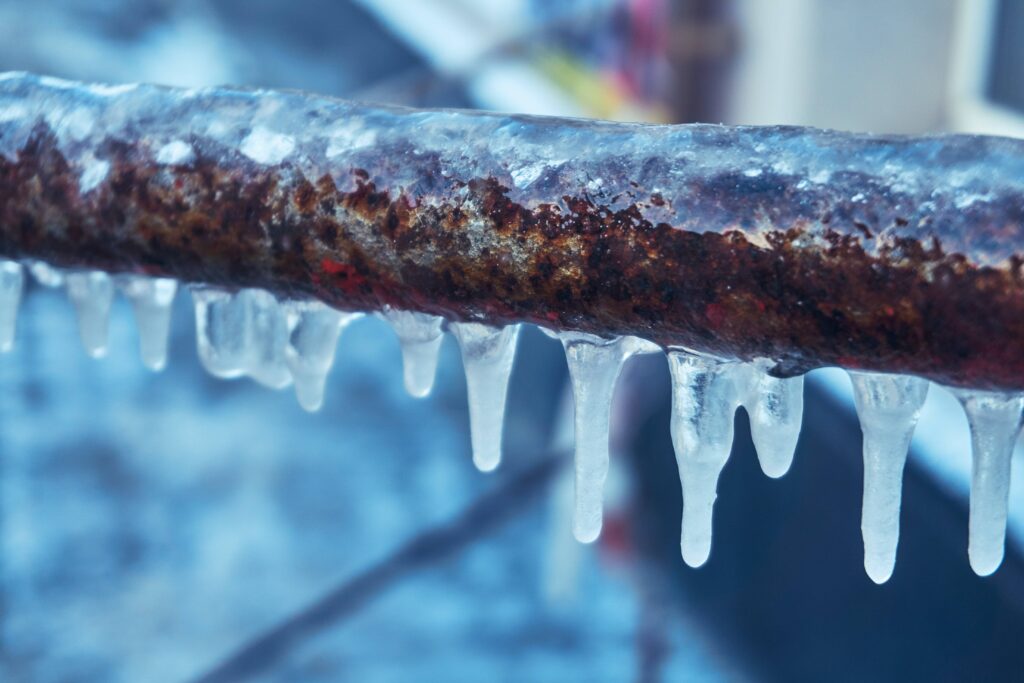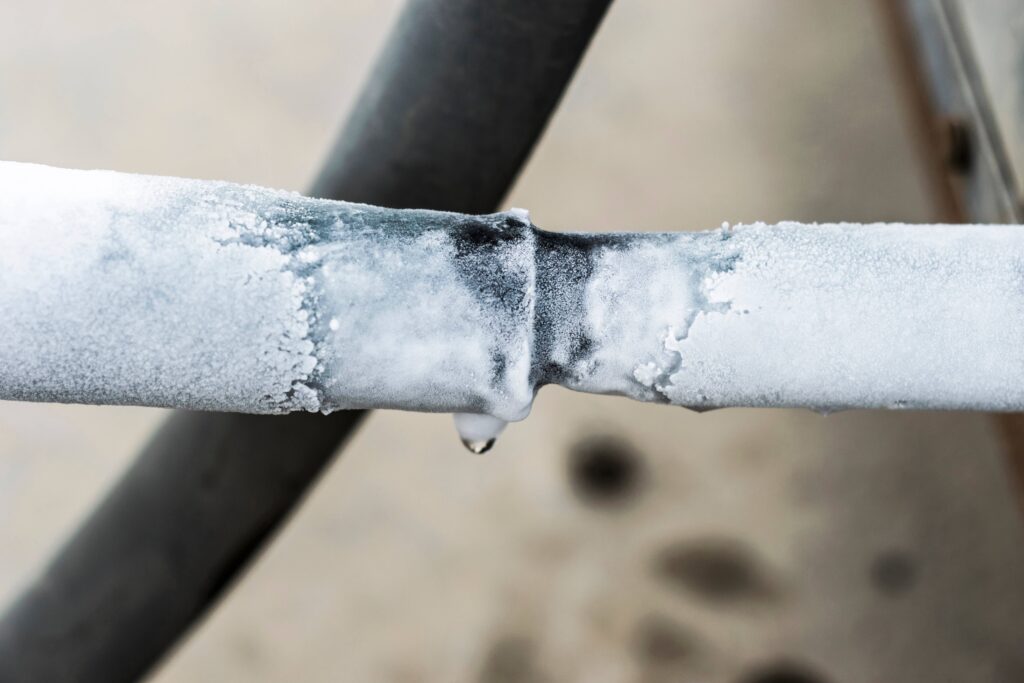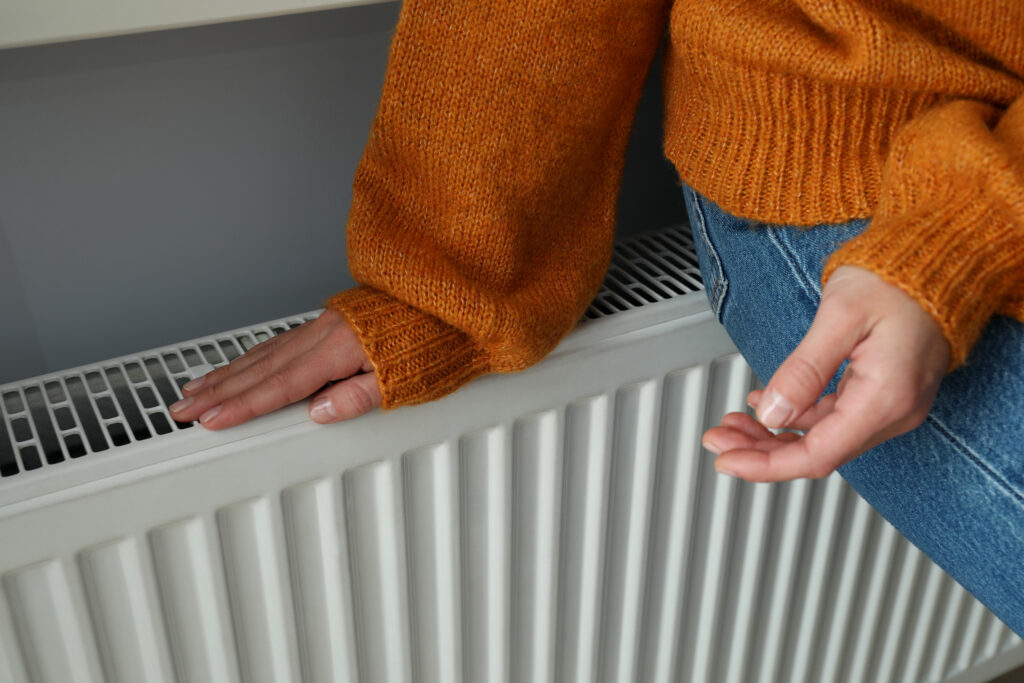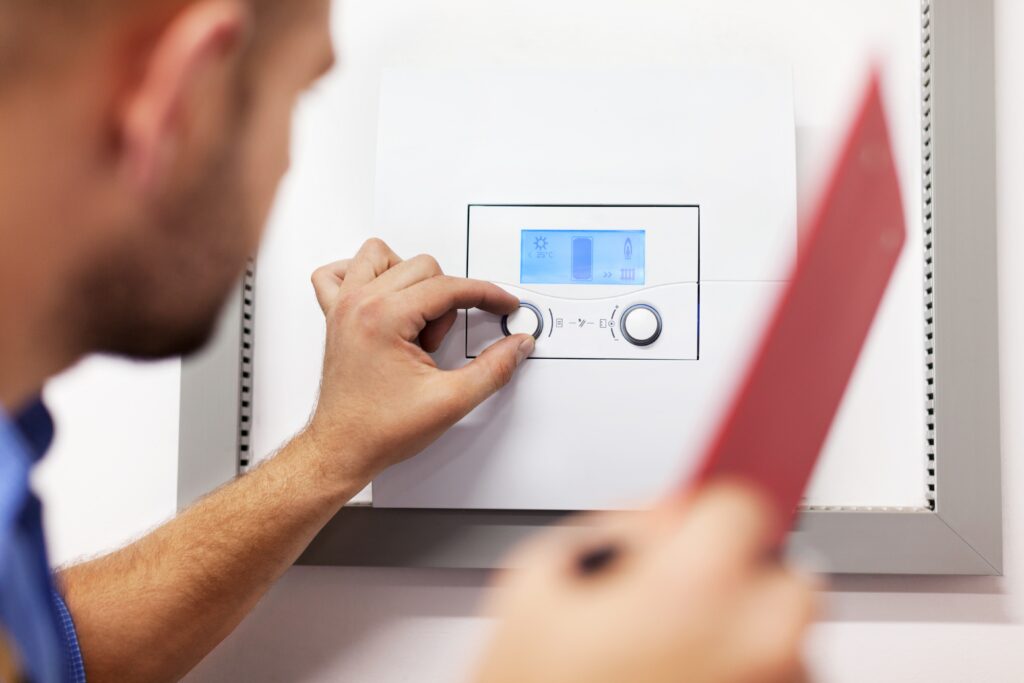Winter in the UK can bring harsh weather conditions, with temperatures often dropping below freezing. As picturesque as a snowy landscape can be, it also poses significant risks to your home’s plumbing system. Frozen pipes are a common issue during the winter months, and if left untreated, they can lead to burst pipes, water damage, and expensive repairs. At Heat-Tec, we’re committed to helping you maintain a warm and safe home throughout the winter. In this comprehensive guide, we’ll share essential tips on how to prevent frozen pipes, ensuring your home stays protected.

Why Are Frozen Pipes a Problem?
When water inside your pipes freezes, it expands. This expansion creates pressure within the pipes, which can lead to cracks or, in severe cases, cause the pipes to burst. A burst pipe can flood your home, damage your belongings, and require costly repairs. Preventing frozen pipes is not just about avoiding inconvenience; it’s about protecting your home from significant damage.
Insulate Your Pipes Properly
One of the most effective ways to prevent pipes from freezing is to ensure they are adequately insulated. This is especially important for pipes located in unheated areas of your home, such as lofts, basements, garages, and crawl spaces.
- Use Pipe Insulation: Foam insulation sleeves are a simple and cost-effective solution to keep your pipes warm. They are easy to install and can make a significant difference in preventing the pipes from freezing.
- Consider Heat Tape: For extra protection, especially in areas prone to extreme cold, you can wrap pipes with heat tape or cables. This solution helps maintain a consistent temperature within the pipes.
Keep Your Home Warm
Maintaining a steady indoor temperature is crucial during the winter months, even when you’re not at home.
- Set Your Thermostat: Ensure your thermostat is set to at least 13°C (55°F), even if you’re away. This temperature is typically sufficient to keep the water in your pipes from freezing.
- Keep Heating On: If you’re planning to be away from home for an extended period, do not turn off your heating entirely. Instead, leave it on at a low setting to prevent pipes from freezing.
Seal Any Drafts
Cold air entering your home through gaps or cracks can quickly cause pipes to freeze, especially those located near external walls.
- Inspect and Seal Gaps: Check for gaps around windows, doors, and where pipes enter your home. Use caulking or weather stripping to seal these areas and prevent cold air from entering.
- Insulate Vulnerable Areas: Ensure that areas such as the loft, basement, and garage are well insulated to prevent heat loss and protect pipes from freezing.

Let Faucets Drip During Cold Spells
Allowing a small amount of water to drip from your faucets can relieve pressure in the pipes and reduce the risk of freezing.
- Focus on Vulnerable Pipes: Turn on taps connected to pipes that are most at risk of freezing, such as those running through unheated spaces.
- Why It Works: A small trickle of water can prevent pressure from building up inside the pipe, even if the water freezes.
Open Cabinet Doors
Pipes under sinks, particularly those along exterior walls, are vulnerable to freezing.
- Allow Warm Air to Circulate: By opening cabinet doors, you can allow warm air from the rest of the house to circulate around these pipes, reducing the risk of freezing.
- Keep an Eye on Pipes: Regularly check these areas during cold weather to ensure they remain warm and free from ice.
Disconnect and Drain Outdoor Hoses
Outdoor hoses and bibs are particularly susceptible to freezing because they are exposed to the elements.
- Disconnect Hoses: Before the first frost, make sure to disconnect and store all outdoor hoses. This simple step can prevent ice from forming in the hose and back into the pipe, which could lead to a burst.
- Shut Off Outdoor Bibs: If your outdoor bibs have a shut-off valve, turn it off and drain any remaining water from the pipes.
Know Where Your Water Shut-Off Valve Is
In the unfortunate event that a pipe does burst, knowing how to quickly shut off the water can significantly reduce damage.
- Locate Your Main Shut-Off Valve: Make sure you and other household members know where the main shut-off valve is located.
- Practice Turning It Off: Test the valve periodically to ensure it’s in good working condition and can be easily turned off in an emergency.
Regularly Inspect Your Heating System
Your central heating system plays a critical role in preventing frozen pipes. A well-maintained boiler and heating system ensure that your home remains warm enough to protect your pipes during cold weather.
- Annual Boiler Service: Schedule an annual service for your boiler to ensure it’s operating efficiently and safely.
- Check Radiators: Bleed your radiators regularly to remove any air pockets that could prevent them from heating your home effectively.
Consider a Smart Thermostat
Investing in a smart thermostat can help you monitor and control the temperature in your home more effectively, even when you’re not there.
- Remote Access: A smart thermostat allows you to adjust your central heating remotely, ensuring your home stays warm enough to prevent frozen pipes, even if you’re on holiday.
- Energy Efficiency: These devices also help improve energy efficiency, saving you money on your heating bills.
Emergency Measures If Your Pipes Freeze
If you suspect that a pipe has frozen, take immediate action to prevent it from bursting.
- Thawing Pipes: If a pipe is frozen but has not yet burst, you can try to thaw it using a hair dryer, a heating pad, or by wrapping it in towels soaked in hot water. Start from the faucet and work your way back towards the blockage.
- Call a Professional: If you’re unable to thaw the pipe or if you notice any cracks, call a professional plumber immediately.
FAQs on Preventing Frozen Pipes
- Can my water meter freeze?
Yes, water meters can freeze in extremely cold temperatures, especially if they are located in unheated or exterior areas. Insulating the meter and surrounding pipes can help prevent freezing. - How to keep drain pipes from freezing?
To protect drain pipes, keep areas warm by heating or insulating around them. Additionally, letting a small trickle of water run through vulnerable pipes can reduce the chance of freezing. - Can you give frost protection for outside pipes?
Yes, frost protection can be provided by insulating outdoor pipes with foam sleeves and using heat tape in extreme cold. This insulation keeps pipes from dropping to freezing temperatures. - What should I do if my pipes have already frozen?
If pipes freeze, you can try safely thawing them with a hair dryer, starting near the faucet. Avoid open flames or high heat. If in doubt, consult a plumber. - What temperature should I keep my home at to prevent frozen pipes?
Maintaining an indoor temperature above 13°C (55°F) should help keep pipes from freezing, even if you’re away from home for an extended period.
Thanks for reading todays blog from Heat-Tec
Preventing frozen pipes is crucial for protecting your home during the winter months. By following these tips, you can reduce the risk of frozen pipes, avoid costly repairs, and enjoy a warm, worry-free winter. At Heat-Tec, we’re here to help you with all your heating and plumbing needs. If you have any concerns or need assistance with your home’s heating system, don’t hesitate to contact us. Stay warm, stay safe, and protect your home this winter.
For more information on our services and how we can help you maintain your home’s heating system, contact us directly.






